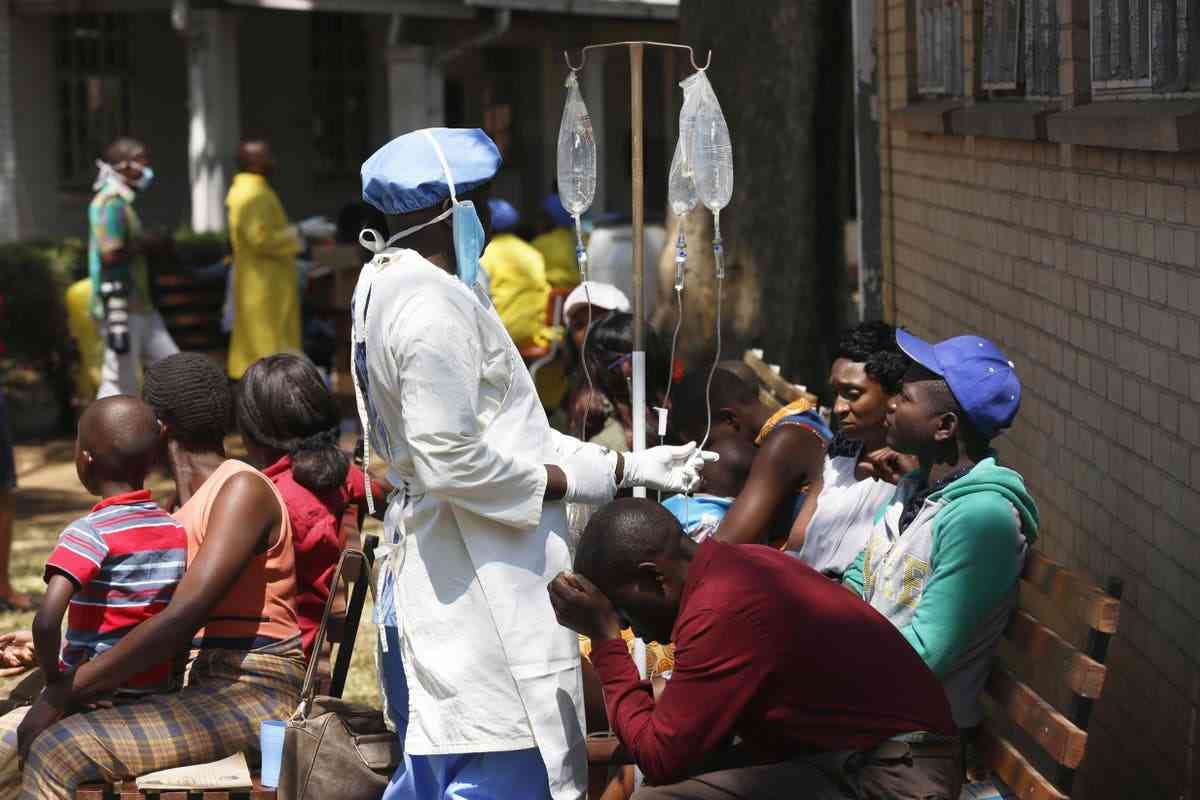
ZIMBABWE has been hit by a cholera outbreak, with the number of infections and deaths linked to the disease rising.
The current cholera crisis is the worst since 2008, when more than 4 000 people died in a nationwide outbreak that the government declared a national emergency.
The government recently declared the cholera outbreak in Harare a state of disaster and pledged to assist the local authority procure water treatment chemicals.
In addition, the government has restricted public gatherings and food vending in the central business district.
The recurrence of cholera in the country is an alarming testament to the challenges faced by Zimbabwe’s healthcare system and appalling service delivery.
Cholera is a disease that most consider a relic of the past. But it is shameful that in the 21st century it continues to claim lives, highlighting the urgent need for a collaborative effort between the government and local authorities to address its root causes and prevent further outbreaks.
At its core, cholera is a disease of poverty, inadequate sanitation, water contamination, and poor sewage disposal mechanisms and waste management systems.
Zimbabweans are grappling to access clean water and proper sanitation facilities.
- Harare cancels Pomona waste deal
- Devolution gains remain a mirage
- Harare cancels Pomona waste deal
- Pomona saga: Harare handed shock US$750k ‘garbage’ bill
Keep Reading
This dire situation creates a breeding ground for the vibrio cholerae bacteria, the causative agent of cholera.
If anything, this outbreak should serve as an important lesson to the government and local authorities, since we did not learn anything from 2008.
Prioritising infrastructure development to ensure access to clean water and proper sanitation for all citizens is a fundamental right.
Investment in water treatment facilities, sewage systems, and public health education is crucial to breaking the cycle of cholera outbreaks.
This requires not only financial commitment but also a concerted effort to address systemic issues contributing to the spread of the disease.
Furthermore, the response to cholera outbreaks should extend beyond emergency measures to include long-term strategies for disease prevention.
Public health campaigns that educate communities about proper hygiene practices, the importance of clean water, and early detection of symptoms can empower individuals to take an active role in preventing the spread of cholera.
The state, working with local authorities, must establish rapid response mechanisms to contain outbreaks swiftly, ensuring that medical treatment and clean water are readily available to affected communities.
The importance of data collection and surveillance cannot be overstated.
A robust monitoring system will enable authorities to identify vulnerable areas and populations, allowing for targeted interventions.
In this age of technological advancement, real-time data can guide resource allocation, enabling a more efficient and effective response to outbreaks.
Zimbabwe just had an election in August. As citizens, we expect the leaders we elected into government and local authorities to prioritise public health and work tirelessly to eradicate preventable diseases.
Harare City councillors and officials going on a five-day strategic planning retreat in Nyanga, at a time cholera is wreaking havoc in the country, was a clear sign of poor decision making.
In a memo dated November 22, addressed to human resources and general purposes’ committee, Harare City Council town clerk Hosiah Chisango directed that ZW$132,4 million (equivalent of US$23 000 at the US$1:ZW$5 774 official exchange rate on that day) and US$12 000 for the meeting.
This goes beyond poor judgment. Instead, they should have been brainstorming at Town House ways of addressing the root causes of cholera. Local authorities need to minimise the number of sewer burst pipes. In some suburbs, raw effluent flows into homes and on the streets.
The stench and flowing sewer have become almost normal in some areas. So when primitive diseases like cholera hit, it is not surprising.
We must avoid knee-jerk solutions. We all know what the causes are.
Defeating cholera in Zimbabwe requires a comprehensive strategy that combines immediate responses with sustained, long-term solutions.
By addressing the root causes and investing in healthcare, sewer reticulation, waste management and water treatment infrastructure, Zimbabwe can start to eradicate this medieval disease.






